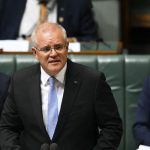Telecommunications: When the future calls how will you answer?

There was once a time when people were unable to carry on conversations using voice telephones. Many years of innovation have brought us to where we are today – in a world dominated by a variety of communication devices. What will the technology of the future look like?
When I was hitch-hiking around the US and Canada as a university student in the late sixties, I sent just two postcards home to my mother during the entire two months I was away.
Now the gap-year children of my school friends won’t let a day slip without texting or skypeing home. Ten years ago there were no iPhones or iPads. Now they are universal and Apple was briefly, during the first week of August 2011, the most valuable company in the world by market capitalisation.
Social networking can deliver the good and the bad – the removal of Hosni Mubarak from power in Egypt on one hand and collectivising the Tottenham riots on the other. On-line shopping may well destroy department stores (and perhaps even shopping malls) as we know them while delivering a world market and profits to a New Zealand merino and possum fur beanie manufacturer. The future of communications technology will expand exponentially in ways most of us cannot imagine – some of the outcomes we will appreciate, but some we may live to regret.
 This look at the future of the Australian communications technology industry has adopted, as the basis for discussion, the generic issue of ‘maximising consumer benefit while minimising negative social outcomes from emerging communications technology’ over the next three to 10 years. We have taken our lead from recent speculative fiction in crafting four scenarios that perhaps give some indication of how emerging communications technology might shape our society.
This look at the future of the Australian communications technology industry has adopted, as the basis for discussion, the generic issue of ‘maximising consumer benefit while minimising negative social outcomes from emerging communications technology’ over the next three to 10 years. We have taken our lead from recent speculative fiction in crafting four scenarios that perhaps give some indication of how emerging communications technology might shape our society.
It is clear from these scenarios that technology is a two-sided coin. It can deliver seemingly negative results, but it has also resulted in obvious positive impacts. The key issue for Open Forum members is the identification of actions and developments for implementation today that will ensure, over the next ten years, we see more of the latter and less of the former.
SCENARIO 1. Moxyland – Lauren Beukes looks forward to a society (in South Africa, but it could be anywhere) that essentially operates by, and through, mobile phone technology. Everyone’s entire life, including criminal record and financial position, is held on-line. The mobile phone, and hence access to cash, can be cut off centrally and punishment meted out by cell-phone administered shocks. No phone = no access to mainstream society. No phone = no access to public transport. No phone = no normal life.
SCENARIO 2. Nourish the Planet – Okay this isn’t a novel, but it is a newspaper article that shows the very real positive benefits that can emerge with mobile communications technology. Farmers and other traders throughout Africa are now using remote electronic money networks to make payments and receive payments on behalf of the ‘unbanked’. All money is stored electronically and the cell-phone itself acts as the debit card. The same benefit can be seen in the recent explosion of on-line entrepreneurship throughout the world.
SCENARIO 3. Minority Report – The Spielberg film was loosely based on a short story by Philip K Dick. It is primarily focused on the struggle between free will and determinism, but it also delivers some interesting insights into near-future consumerism. Iris recognition and body scan technology allow remote marketing of individually targeted messages to each potential shopper as they pass through a shopping mall or by a street stall. Nowhere, and at no time, does real-time tracking and sensing allow the individual to remain alone or to pass unrecognised.
SCENARIO 4. The Daily Planet – In 1900, there were 40 individual newspapers published each day in Paris. Today, in Sydney, there are three (and two of them are published by the same company). This means an acute shrinkage of information and opinion. One real upside of communications technology is that it massively expands our options on where and how we access information and inform our opinions. The next ten years will see whether this extends democracy, or triggers massive censorship, or buries us all in a tsunami of indigestible factoids.
Open Forum member feedback
Your comments on these four near future scenarios and suggestions for action now will be used to refine The Future Project’s proposed ‘issue & scenarios posting’ on the future of communications. With that posting to access a wider spectrum of social networks, and reach a global audience for the aggregation of crowd wisdom into public debate of, and policy action on, this crucial issue.
The Futures Project
The Futures Project is focused on a single ambition: directing the wisdom of crowds at encouraging government and business clients to shift their emphasis from hindsight and daily ‘fire fighting’ to the application of insight and foresight in preparing society now for better outcomes in the near future.
Fergus Neilson is Co-Founder of The Futures Project. Fergus brings a wide range of business and life skills gathered from a career in the armed forces, investment banking, the United Nations, McKinsey & Company and private equity investment. Always sceptical of solutions imposed ‘top-down’ and increasingly frustrated by the default position that invariably sees cleaning equipment bought in only after the proverbial has hit the fan. Fergus can be contacted at Fergus.Neilson@dif.com.au
Fergus Neilson has a wide range of business and life skills gathered from a career in the armed forces, investment banking, the United Nations, McKinsey & Company and private equity investment.












